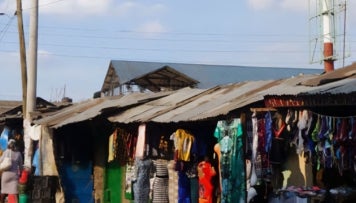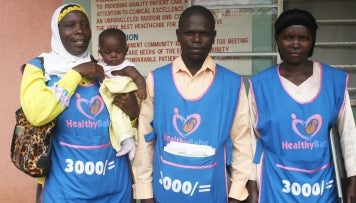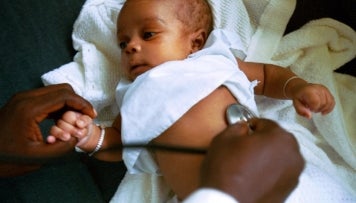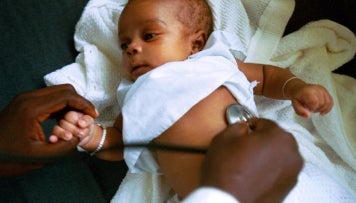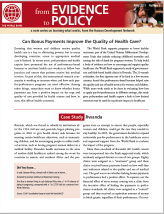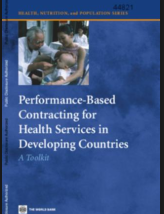
June 15, 2010 --- The Kingdom of Lesotho’s health sector faces daunting challenges including battling the world’s third highest HIV/AIDS prevalence rate (23 percent for adults aged 15-49), low life expectancy (45 years), and an over-burdened health care system with demand consistently outstripping the state’s ability to provide vital health care services, particularly for poor people.
On June 1, a new era in health care dawned when Health and Social Welfare Minister, Mphu Ramatlapeng, handed over three publicly-run clinics in Likotsi, Qoaling and Mabote to theTs’epong Consortium, managed by one of Africa’s largest private health care providers, Netcare.
The project will replace the 100-year old Queen Elizabeth II Hospital, which continues to operate at minimal level, with a new facility that can provide quality care for patients and improved working conditions for staff.The three semi-urban clinics have been refurbished as part of a larger US$100 million project, which is being funded by a coalition of public and commercial financiers from multiple partners, including the Development Bank of Southern Africa, private equity firms and the Government of Lesotho.
The public-private partnership (PPP) for strengthened health service delivery is a first for Sub-Saharan Africa, and taken in the context of Lesotho’s public health challenges, it is a key milestone that represents progress in the government’s effort to overhaul the health system and expand coverage to larger numbers of people.
“We believe this new public-private partnership has the potential to dramatically increase provision of health services,” said Ruth Kagia, World Bank Country Director for Lesotho.
“By adopting a results-based approach and improving effectiveness and efficiency of resources, this project will support Lesotho’s effort to improve health care services for its citizens.”
The project benefits from collaboration within the World Bank Group and a strong partnership with the government of Lesotho. The World Bank provided technical assistance to the design and management of the PPP as part of the Health Sector Reform Program. The International Finance Corporation (IFC), the Bank’s private sector arm, acted as lead advisor to the government of Lesotho throughout the planning, structuring, tendering and implementation phases of the PPP agreement, including extensive due diligence to establish the project’s feasibility and to engage and secure the support of stakeholders locally, regionally and internationally.
Jean Philippe Prosper, IFC Director for Eastern and Southern Africa said, “This pioneering project is the first public-private partnership in Africa's health sector that outsources the design, build and full operation of a hospital and all clinical services. It provides an innovative and sustainable model for governments and the private sector to collaborate in delivering better health services in Lesotho and across sub-Saharan Africa.”
The Global Partnership for Output Based Aid (GPOBA), a partnership program administered by the World Bank, is providing a
US$6.25 million grant to help subsidize the cost of access to services for the residents of Maseru District, the capital city and home to nearly one-third of the country’s population.
“The GPOBA grant means expectant mothers, infants, children, and patients at risk of or living with HIV/AIDS and tuberculosis will have access to improved health services,” said Feng Zhao, Senior Health Specialist and task manager for the project for the World Bank and GPOBA. “As well as providing access to basic services for the poor, the output-based approach puts an emphasis on accountability and efficiency in service delivery, which complements the overall design of the larger hospital PPP project.”
The innovative financing and implementation structure of the project positions Lesotho as a leader in health sector public-private arrangements, potentially providing a model that could be replicated regionally and even globally.
Related Resources
